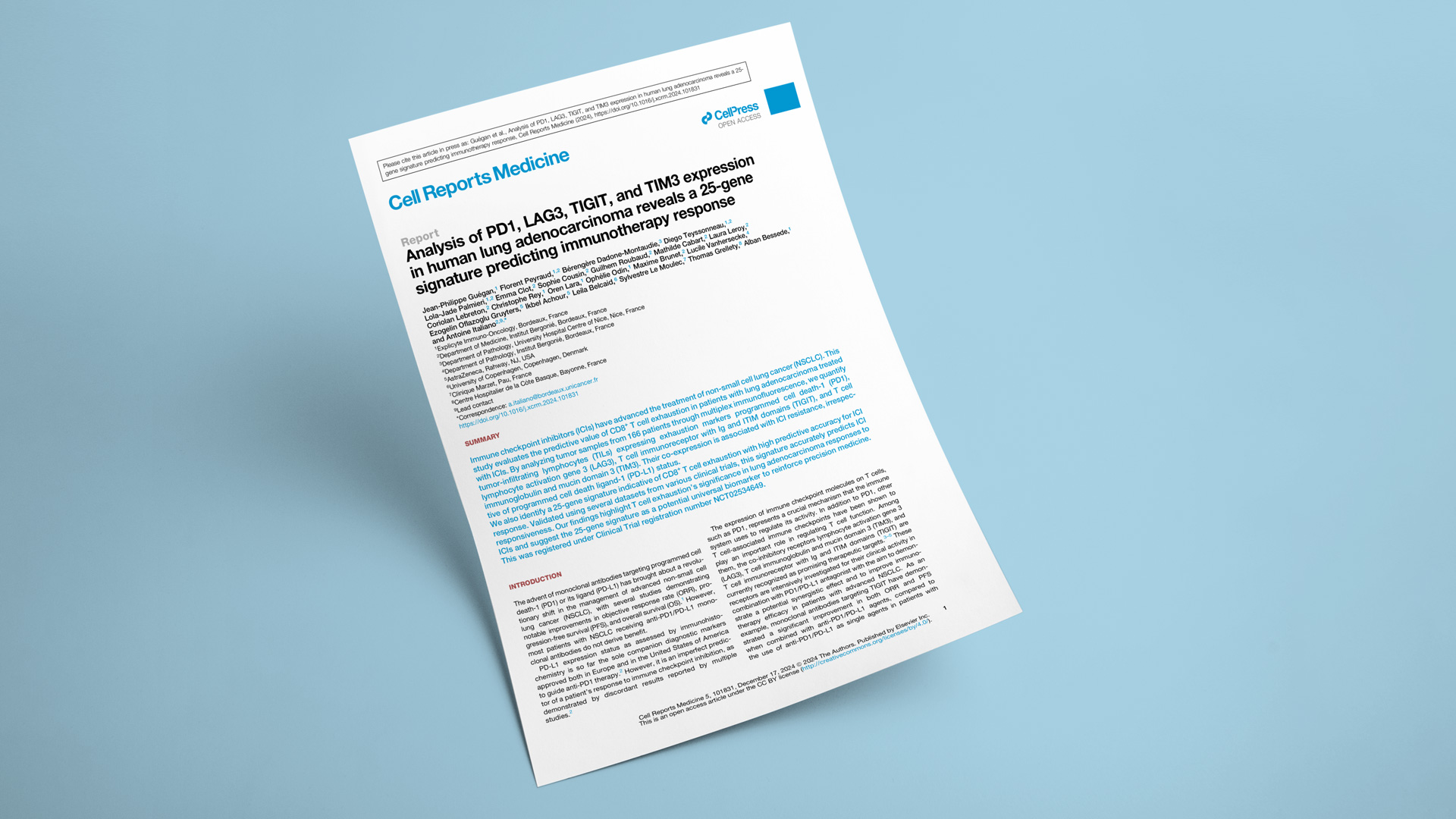This retrospective work, led by Prof. Antoine Italiano (Bergonié Comprehensive Cancer Center) and funded by AstraZeneca and the Nouvelle-Aquitaine Regional Council, is based on the BIP study (NCT02534649). It seeks to evaluate the predictive value of CD8+ T cell exhaustion in lung adenocarcinoma patients treated with immune checkpoint inhibitors.
Assessment of TIL Exhaustion by Multiplex Immunohistofluorescence (mIHF)
Explicyte applied a panel indicative of tumor-infiltrating lymphocyte (TIL) exhaustion (CD8, CK7, LAG3, PD1, TIGIT, and TIM3) to tumor samples from 166 patients with advanced lung adenocarcinoma, collected before their treatment with anti-PD1/PD-L1 immunotherapy. Our mIHF analysis revealed that non-responders featured a high proportion of CD8+ T cells co-expressing PD1 and at least one other marker of exhaustion (LAG3, TIGIT, or TIM3). This profile was associated with poorer clinical outcomes, independently of other factors such as age, gender, and PD-L1 status assessed by IHC.
Whole Transcriptome Analysis Reveals a 25-Gene Signature Predictive of CD8+ T Cell Exhaustion and Response to Immunotherapy
Our translational team then analyzed a total of 135 FFPE samples – characterized for their exhaustion status by mIHF – using the HTG transcriptome panel (19,000+ targets). From this analysis, we identified a 25-gene transcriptomic signature strongly associated with the exhaustion phenotype, demonstrating high predictive accuracy. The robustness of this signature was validated in external datasets from NSCLC clinical trials (POPLAR [NCT02517892], OAK [NCT0200822], and MATCH-R [NCT02517892]).
The Predictive Value of the 25-Gene Exhaustion Signature Extends Beyond Lung Cancer
Datasets from the CA209-038 melanoma trial (NCT01621490) and the JAVELIN Renal 101 (NCT0268400601) trial in renal carcinoma confirmed the robustness of the CD8+ T cell exhaustion signature as a biomarker for stratifying patients likely to benefit from immunotherapy.

